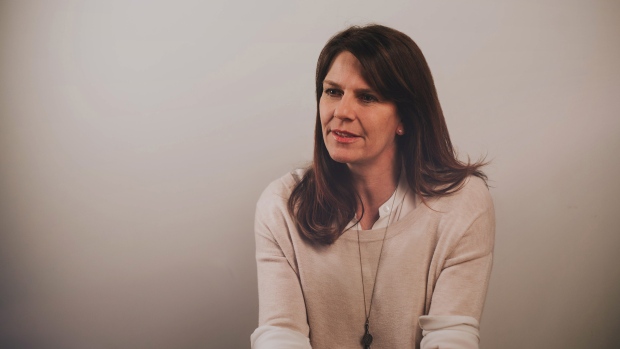Feb 9, 2018
Calculated risk-takers: The money worries and realities of Canadian Gen Xers
, BNN Bloomberg

Generation X appears to have more in common with their younger millennial siblings than they would care to admit – at least when it comes to money.
A few years into their working careers and with a greater toe-hold on their long-term housing, familial and economic futures, the children of the 1970s have a head-start in getting their proverbial house in order. However, some of the same pitfalls that plague their younger counterparts also temper their financial situations: Housing costs, career uncertainty and, still, student debt.
While some Gen Xers have come a long way from the over-educated, underpaid malaise seen in the film “Reality Bites”, some are approaching money and debt with a willingness to take calculated risks to improve their current situations, most notably when it comes to career opportunities.
BNN spoke with four Canadians in their late-30s and 40s about their financial realities, how their feeling about debt, housing and rising rates – and what they’re doing to prepare for the remainder of their working lives.

Sean Walsh, 38, and Nicole DuCôté, 37, are married with a six-and-a-half-year-old daughter. They live in a condo in Toronto’s northeast neighbourhood of Leaside.
DuCôté is a product manager and trainer at a retail management software company, and Walsh is an assistant manager at a camera store.
However, Walsh said he’s preparing for the next stage of his working life. In addition to his day job, he has gone back to school to study user experience design. He admits it’s a gamble, but it’s a bet he said he is comfortable making.
“We often think about how we’re going to manage certain debts. And there are nights where I keep myself up because going back to school and taking on that debt load to try to better my situation is a gamble,” he said. “It’s a huge gamble and I don’t know if it’s going to pay off. I don’t know if I’m going to get a better job and pay off that debt in five or 10 years and when you see that your monthly costs are continuing to rise.”
His newly-acquired student debt isn’t the only one worrying their young family, as DuCôté still has her own debt. Hers, however, comes with an added degree of difficulty: The U.S. exchange rate.
“I’m originally from the States. I moved to Canada to go to school, so my debt originates in the States,” DuCôté said. “This means, when I repay it, I repay it in U.S. funds. So I am at the mercy of the exchange rate when it comes to my debt repayment. Some months are better than others but with the exchange being really bad right now, I’m losing anywhere from $100 to $150 just on the exchange alone.
“I moved here from the States because there was no way I was ever going to be able to afford to go to college or university back home.”
Walsh and DuCôté said they consider themselves fortunate that they bought a condo five years ago, before Toronto housing prices climbed. However, upgrading their home doesn’t make much sense, they said.
“We know we’re in a really lucky position to own a home in the city, anywhere in Toronto,” DuCôté said. “Just to be able to say we have something that we own … we completely lucked out. It was sheer fluke and luck that it happened when it did.”
“When we got our mortgage it was fixed term, so this year that’s actually going to be up for renewal and review,” she added. “One of the things that has me concerned, not hugely concerned but a little, is that the Bank of Canada has raised its interest rate, which could have a negative impact on our review process.”
Despite these concerns the couple said they are looking ahead, especially when it comes to planning their daughter’s future, which they began doing as soon they found out their family was expanding.
“We put money into an RESP for her,” Walsh said. “Obviously we hope she would go on to post-secondary, but it’s money that we’re putting aside for her future – whatever she decides she wants to do with it, whether that’s to travel or to work – to give her an advantage. Her success is more than what we plan for, it’s the most important part of our future.”
Don English, 44, is a paralegal offering legal aid largely dealing with refugee appeals. He lives with his partner of two years, renting a suite in a house in central Vancouver’s up-and-coming Mount Pleasant neighbourhood.
English said he doesn’t see much sense in wading into the city’s over-heated housing market.
“The most pressing worry in this city, probably, is housing,” English said. “It’s a mounting concern. My partner and I, we both make okay money, but in Vancouver there are lots of people that make far greater amounts than us that are just sort of barely getting by.
“For a long time, I knew – because of the industry that I was going into – that it was probably unlikely that I was going to own, which was fine. In terms of being a renter that was something that seemed to make sense for me, but it’s becoming increasingly difficult to even do that. Everything’s just outrageously expensive.”
But looking outside the city has pitfalls of its own.
“I’m most comfortable in Vancouver, because that’s where I’m from. But the difficulty with moving outside the city is that – even in places like Burnaby or New Westminster, Surrey – it’s becoming increasingly difficult to find places out there that are not also jumping up in price,” he said.
“The other difficulty is that any of the money that you could potentially save, you’d then have to spend on the commute back into the city, because that’s where your job is.”
English said that his debt situation is better than what younger generations face, but the reality of life in one of Canada’s most expensive cities makes eliminating that debt trickier than it would be elsewhere.
“I’m not someone who is just out of school and is $40,000 to 50,000 in debt. But there’s going to have to be a concerted effort on my part to try wherever possible to put more money towards paying it down in a not-tremendous amount of time, especially in a city where there’s very little left over after you pay your rent and cost of living,” he said.
Like many of his peers, a professional change may hold the key to better managing his future.
“It’s becoming a bit apparent that if I really do want to save a lot more, I may have to consider finding a job that is outside of my political leanings, which are more geared to a social justice bent,” he said. “The fault of that is that often doesn’t pay particularly well.”
“I do have a modest pension to look forward to, but I’m 44. It’s still 20 years away before I can consider retirement. You get to this age and you start to consider that you should be contributing more towards retirement savings and things like that.”

Karen Schulman Dupuis, 48, is married with a 25-year-old daughter and twin 13-year-old boys. A Toronto native, she and her family moved just over a year ago from a Stratford Ont. home they’d lived in since 2001 to a house in Dundas, Ont., just west of Hamilton.
The move to the Hamilton area was a necessity, she said, even if it contradicted a lot of the opinions she had growing up in Toronto.
“The original move to Stratford was awesome for a lot of reasons. There were a lot of benefits to being there, but the commute was killing me. So I made the decision to move to the Hamilton area,” she said.
“When I was growing up in Toronto, of course, it was like: ‘Hamilton? Who the hell wants to go to Hamilton?’ Then when I started to investigate it a little further, when I mentioned to friends that I was looking to go to Hamilton, the answer was: ‘Oh, Go!’ … we went from the old turn-of-the-century grande dame of a house to what I call the ‘Brady Bunch’ house because it’s a side-split with a carport from the 1970s.”
Getting closer to the Greater Toronto Area was a necessity for her work as a marketing operations and strategy consultant.
But Dupuis, too, is taking on an extra debt load to shore up her remaining working years, laying the foundation for a career shift of her own. In addition to the new home, she is completing a Master’s degree in leadership studies with Victoria’s Royal Roads University.
“For the first time in my life we’re carrying credit card debt,” she said. “So, this last year and a half has been a very uncomfortable place in that regard.”
“However, this has been kind of like the one step backward to take two steps forward. So, I recognize that this is a moment in time and I’m also going to hopefully benefit from my studies and that will result in a different earnings level for me. I’m 48. I basically still have 20 years of my best earning years ahead of me. I don’t worry about it.”
Dupuis said that her years spent as a single parent taught her to stretch her money and that her current debt concerns are just a “moment in time.”
“I think that, to be frank, it also comes out of the fact that I was a single mother for nine years and I was on social assistance, and when I didn’t have two cents to rub together, suddenly my GST cheque would come in or my tax return would come in and those things kind of kept me going,” she said.
If Dupuis needs to make a life adjustment to handle her debt, she said she’s prepared for that, too.
“I’m not a fatalist in the sense that I’m like ‘Worst case scenario: Sell the house.’ [If] we live in something that’s not quite as big or as lovely or as situated as we want to be, but it’s just a place in that sense, fine,” Dupuis said.
“Could I sell [the house] and move into a three-bedroom condo if I had to? Sure, I could.”



